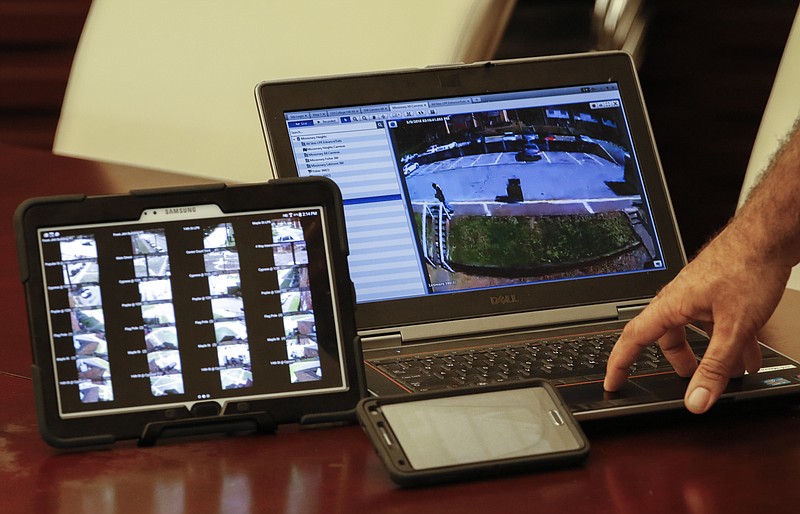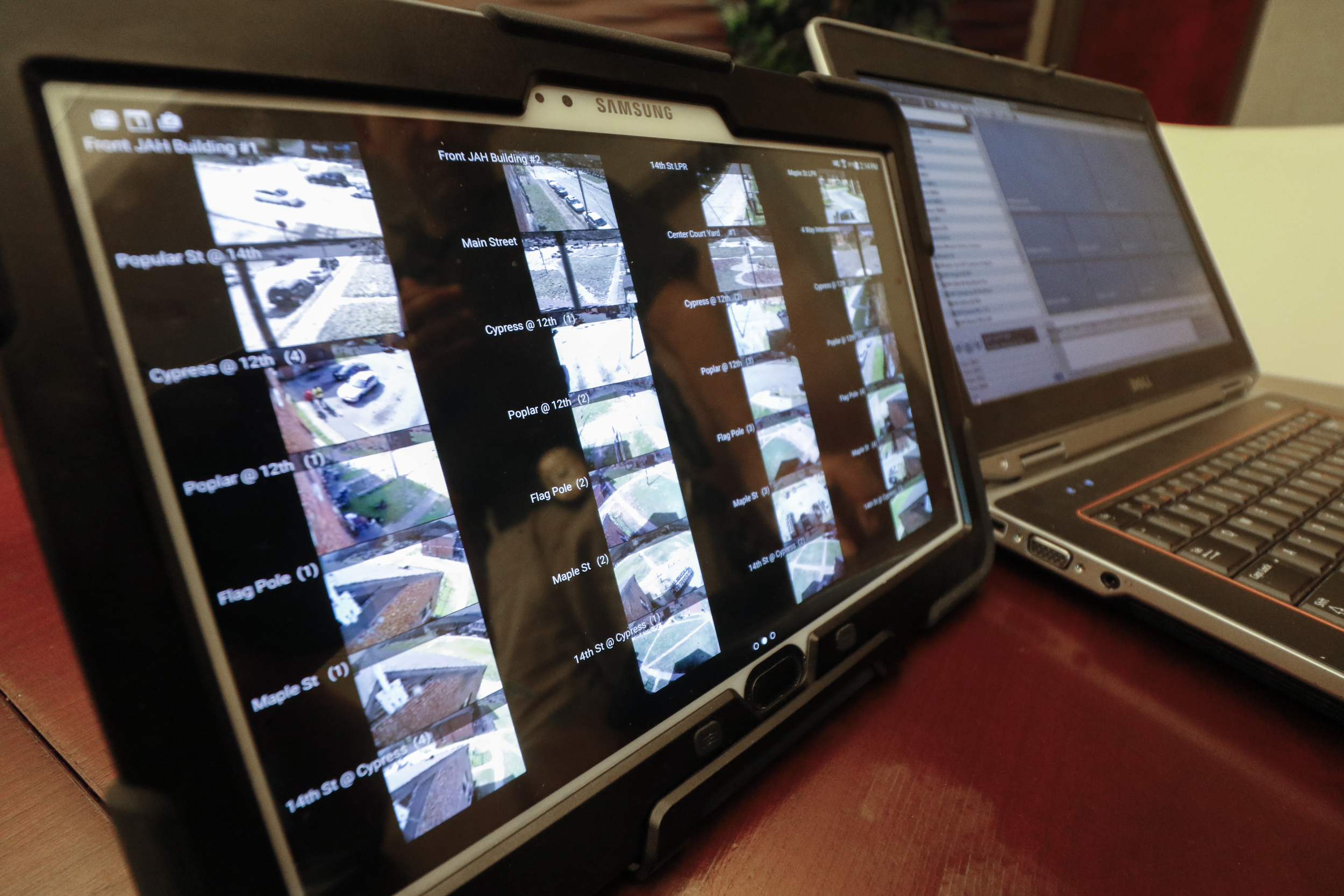The Chattanooga Housing Authority's police force wants to remove the need for often-reluctant eyewitnesses to hold criminals accountable for their offenses.
Within the past year, CHA has spent $200,000 to equip half its family housing sites with digital video recording equipment, CHA police Chief Felix Vess said.
He said the agency sought the cameras to help solve crimes because many witnesses won't come forward for fear of retaliation or having to face suspects in court.
"The overall goal is resident safety and to take the witnesses away from having to testify," Vess said. "I'm trying to use the digital video recording as the witness. It verifies the vehicle, the suspects in a crime and if the crime occurred."
CHA residents are mostly single women with children, and most of them don't commit crimes. More than 70 percent of crime at public housing sites is committed by people who don't live there, and many times even the victims don't even live at the sites, Vess said.
Video footage is evidentiary, said Chattanooga Police Chief Fred Fletcher, who has worked with Vess to solve crime at public housing sites.
"If video evidence supplants need to have a witness then, obviously, there is no witness to suffer retaliation," Fletcher wrote in an email Friday.
Over the year, CHA has upgraded East Lake Courts' nine analog cameras to 23 high-resolution digital video cameras with a 15-day backup.
College Hill Courts went from 14 analog cameras to 30 high-resolution digital video cameras; Emma Wheeler Homes went from six cameras to 22; and Greenwood has six. And for the first time, cameras have been installed at Missionary Heights, Vess said.
The technology already has helped identify and locate suspects. Arrests have been made in each of the four homicides that took place on CHA property last year - two involving domestic violence and two blamed on gang violence.
The cameras record 24/7. And unlike previous cameras that operated like wireless cellphones and sometimes lost their signal, the new cameras have a hard-wired fiber network that makes recording more reliable, Vess said. All upgraded and new cameras installed since April 2015 have been working consistently.
CHA also applied this year for a $5,000 grant from the Tennessee Municipal League. Together with a $5,000 local match, the money will pay to upgrade video equipment in the elderly high-rise buildings.
Sitting in CHA Executive Director Betsy McCright's office this week, Vess showed how the new cameras can photograph the license plate of a moving vehicle from 15 feet in the air. And officers can view images from the cameras on smartphones, computers and tablets instead of having to sit down at a computer in the East Lake Courts precinct.
"We've installed top-of-the-line stuff into our communities," Vess said. Chattanooga police also are building a Victim Services function to support victims and witnesses accessing services.
Some local residents expressed mixed feelings.
One 30-year-old resident who said he was born and raised at College Hill believes the cameras may help catch criminals, but they won't deter crime.
"It's not going to stop nothing," said the man, who asked not to be identified for fear of reprisal. "Whatever [criminals] going to do, they're going to do. They don't care about going to jail."
Another longtime College Hill resident, who also asked not to be identified, said police don't monitor the cameras they have, and they harass the wrong people.
"They don't know who they're looking for, but [police] harass everybody," the man said while sitting on his porch this week.
But Chelsea Simmons, a College Hill Courts resident since October 2015, welcomes the cameras and said she has no concern about invasion of privacy issues that sometimes come with surveillance cameras.
"If you want privacy, go behind your closed door. And if you don't have a home out here or you're not visiting someone, you don't need to be here," she said.
Fletcher said Friday that some witnesses and bystanders have nothing to do with violence and are understandably frightened by testifying against a suspect, but much of gang violence is cyclical.
"Many of today's victims are also yesterday's or tomorrow's suspects," he said. "People are shooting people or groups who previously shot at them or their group."
Cameras helped to identity alleged assailants in a College Hill Courts brawl this month where one man was kicked in the head 40 times, according to police.
Dekendra Mason, Denzel Montgomery and Andre Porter, all validated gang members, were identified in videos as being in the brawl. Arrest warrants have been issued for all three. And CHA police said they didn't have to talk with the victim to get information.
"We're trying to take the witnesses out of this," Vess said.
Contact staff writer Yolanda Putman at yputman@timesfreepress.com.

